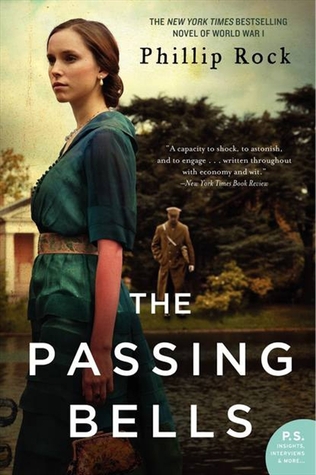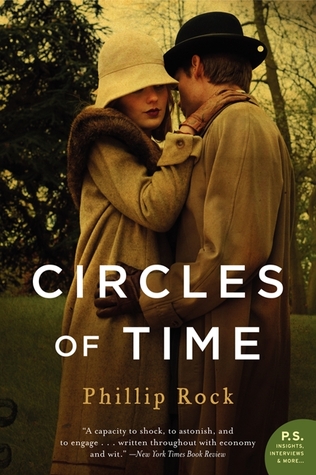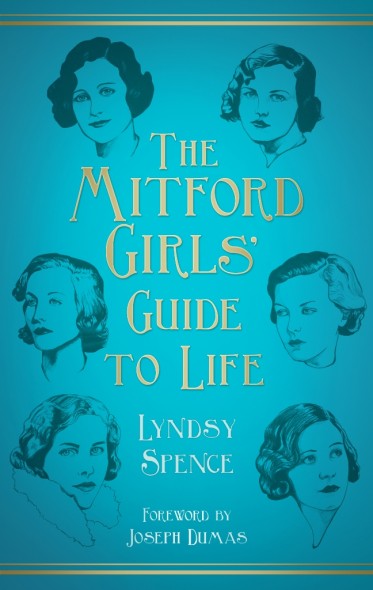
The guns of August are rumbling throughout Europe in the summer of 1914, but war has not yet touched Abingdon Pryory. Here, at the grand home of the Greville family, the parties, dances, and romances play on. Alexandra Greville embarks on her debutante season while brother Charles remains hopelessly in love with the beautiful, untitled Lydia Foxe, knowing that his father, the Earl of Stanmore, will never approve of the match. Downstairs the new servant, Ivy, struggles to adjust to the routines of the well-oiled household staff, as the arrival of American cousin Martin Rilke, a Chicago newspaperman, causes a stir.
But, ultimately, the Great War will not be denied, as what begins for the high-bred Grevilles as a glorious adventure soon takes its toll—shattering the household’s tranquillity, crumbling class barriers, and bringing its myriad horrors home.
Earlier this year, during the beginnings of the Downton Abbey craze in America, The New York Times published an article listing comparable books publishers were either reissuing or promoting in order to attract those hungry for more of the “Downton Abbey” experience. Multiple recommendations for Phillip Rock’s The Passing Bells, Circles of Time, and A Future Arrived poured in, and for a trilogy that appeared very popular in its heyday, I was shocked to find it incredibly difficult to find. My local library didn’t even have one copy of any of the three books. Thankfully, William Morrow snapped up the rights to reissue the books, and the first of the trilogy was released this past Tuesday. When the publicist at WM offered to send me a copy, I gladly accepted and having gobbled up the book in two days, the praise it garnered is more than justified.
The Passing Bells weaves the story of the Earl and Countess of Stanmore, their offspring Charles, Alexandra and William Greville, American cousin Martin Rilke, family friends Fenton and Roger Wood-Lacy, Winifred Sutton, and Lydia Foxe, and chauffeur Jamie Ross and housemaid Ivy Thaxton, as they live on the cusp of WWI. Rock skillfully circumvents the baggage associated with this setting with clever plotting and intriguing characters, as well as his tendency to pull away at the moment where the story had the potential to fall into cliche. The introduction of Martin Rilke, Lady Stanmore’s nephew (she is a former American heiress), is where the story shifts from a typical “end of the aristocracy” tale to something modern American audiences can understand and interpret. It is obviously no happenstance that Martin is a German-American journalist, for his observations draw an accurate portrait of just how monumental an impact the First World War was on Europe–even more so than witnessing the battle through the eyes of the English characters.
The bulk of the novel takes place during WWI, and though Rock describes the carnage in a graphic and unforgettable manner, the focus remains more on how the war has taken a toll on the characters than on a play-by-play of the battles (so those of you who are a bit squeamish can rest assured!). This, however, may frustrate some readers because as the pace increases, the story begins to flip dizzying between the characters and leaping ahead in time to keep the plot moving. As a result, some major characters drop out of the narrative only to reappear when their presence will create more drama, and other characters’ stories are sped up and then tossed out of the narrative to return to the primary storyline (mainly, Martin Rilke’s involvement as a jaded war correspondent and to a slightly lesser degree, Fenton Wood-Lacy’s rise in the military). Despite these issues, The Passing Bells was a page-turner that begs you to not only read on past your bedtime, but to want books two and three!
Available on Amazon and Barnes & Noble. Available December 18 from Amazon UK.
Book 2: Circles of Time

A generation has been lost on the Western Front. The dead have been buried, a harsh peace forged, and the howl of shells replaced by the wail of saxophones as the Jazz Age begins. But ghosts linger—that long-ago golden summer of 1914 tugging at the memory of Martin Rilke and his British cousins, the Grevilles.
From the countess to the chauffeur, the inhabitants of Abingdon Pryory seek to forget the past and adjust their lives to a new era in which old values, social codes, and sexual mores have been irretrievably swept away. Martin Rilke throws himself into reporting, discovering unsettling political currents, as Fenton Wood-Lacy faces exile in faraway army outposts. Back at Abingdon, Charles Greville shows signs of recovery from shell shock and Alexandra is caught up in an unlikely romance. Circles of Time captures the age as these strongly drawn characters experience it, unfolding against England’s most gracious manor house, the steamy nightclubs of London’s Soho, and the despair of Germany caught in the nightmare of anarchy and inflation. Lives are renewed, new loves found, and a future of peace and happiness is glimpsed—for the moment.
Pre-Order Amazon or Barnes & Noble (January 2, 2013) — Available January 15, 2013 from Amazon UK.
Book 3: A Future Arrived

The final installment of the saga of the Grevilles of Abingdon Pryory begins in the early 1930s, as the dizzy gaiety of the Jazz Age comes to a shattering end. What follows is a decade of change and uncertainty, as the younger generation, born during or just after the “war to end all wars,” comes of age.
American writer Martin Rilke has made his journalistic mark, earning worldwide fame with his radio broadcasts, and young Albert Thaxton seeks to follow in his footsteps as a foreign correspondent. Derek Ramsey, born only weeks after his father fell in France, and Colin Ross, a dashing Yankee, leave their schoolboy days behind and enter fighter pilot training as young men. The beautiful Wood-Lacy twins, Jennifer and Victoria, and their passionate younger sister, Kate, strive to forge independent paths, while learning to love—and to let go.
In their heady youth and bittersweet growth to adulthood, they are the future—but the shadows that touched the lives of the generation before are destined to reach out to their own.
Pre-Order: Amazon or Barnes & Noble (February 5, 2013) — Available February 13, 2013 from Amazon UK





I think you meant “Priory”.
Ah, nope. That’s how it’s spelled in the book–the explanation was that it was a deliberate mistake made by the founder of the family line. 😉
Evangeline, just home from work today in which I ran across The Passing Bells purely by chance. I almost fainted with joy. I read it when I was a young woman and loved it. Years passed and I could only remember that the title had bells in it. I have been on the look out for it for 25 years. Not only did I rediscover it, I learned that it was part of a trilogy. So happy you liked it too.
How wonderful! It’s always annoying when you love a book and forget the title! I am eagerly anticipating the second and third books!